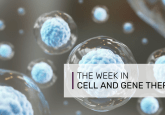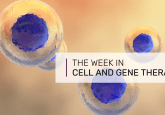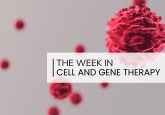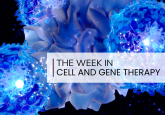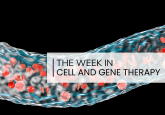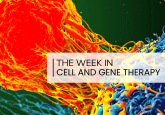Cell therapy weekly: Gene-edited porcine donors for xenotransplantation
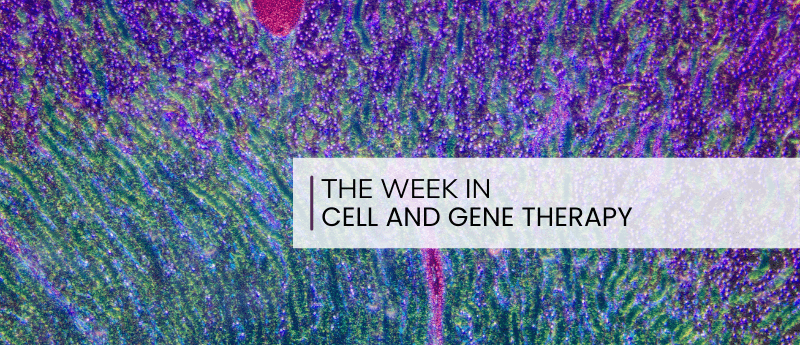
Last week: eGenesis (MA, USA) and PorMedTec (Tokyo, Japan) produced genetically engineered porcine donors for xenotransplantation to address organ donor shortages in Japan, the RTW Charitable Foundation (NY, USA) delegated funding to provide genetic medicines for rare disease and a new University of Liverpool (UK) spin-out will leverage mesenchymal stem cells’ trophic repair system in its novel cell therapy production technology.
The news highlights:
- Gene-edited porcine donors aim to address organ shortages
- Funding awarded to develop genetic therapies for underserved rare diseases
- New spin-out takes advantage of mesenchymal stem cell trophic repair
Gene-edited porcine donors aim to address organ shortages
A collaboration between eGenesis and PorMedTec has resulted in the successful production of genetically engineered porcine organ donors in an effort to overcome donor shortages in Japan. In this partnership, eGenesis provided genetically engineered porcine cells, which carried edits that deactivated endogenous porcine retroviruses, disabled genes related to hyperacute rejection and incorporated human transgenes to control rejection processes. PorMedTec utilized these genetically engineered cells to produce donor pigs through somatic cell nuclear transfer.
The company recently published a groundbreaking preclinical study in Nature, using kidneys with these genetic modifications.
“Very few patients on the waiting list with end-stage organ failure can undergo transplantation in Japan due to the lack of organ donors. Dialysis burdens patients and their families and generally results in a decreased quality of life. The medical costs are enormous — in Japan, ¥2 trillion is spent annually on renal dialysis, constituting 4% of the total medical expenditure of the country,” remarked Hiroshi Nagashima, founder, Chief Scientist and CEO of PorMedTec. “Cloning technology will enable the use of an alternative organ supply using genetically engineered porcine donors. Our goal is to provide a sustainable supply of organs to all patients in need of transplant.”
Funding awarded to develop genetic therapies for underserved rare diseases
The RTW Charitable Foundation, a charitable arm of RTW investments, has awarded grants of US$150,000 each to six research studies. These studies focus on providing genetic therapies for various rare diseases, including neurological, muscular and metabolic disorders, that currently have inadequate treatment options.
“Despite considerable advancements in gene and cell therapies that deliver more targeted and effective treatments for rare diseases, a significant amount of additional research is still required to move these advances out of the lab and safely to patients,” stated Juan Carlos López, Managing Director of Research Grants at the RTW Charitable Foundation. “RTW Charitable Foundation is proud to provide financial and scientific support to these six incredible researchers and their respective studies. We believe that each of these studies will help expedite the development of gene therapies for rare and ultrarare diseases, and greatly improve the lives of individuals with unmet medical needs.”
New spin-out takes advantage of mesenchymal stem cell trophic repair
A new spin-out company, TrophiCell (Liverpool, UK), has been launched from the University of Liverpool. The spin-out will leverage the trophic repair system of mesenchymal stem cells (MSCs), whereby there is secretion of anti-inflammatory and regenerative factors. The spin-out builds on research from the university, which identified that MSCs still exhibit trophic repair over numerous generations of growth in vitro, despite their differentiation capacity falling off after only a few generations. TrophiCell will optimize trophic repair using a novel patented approach to cell therapy production that will enable greater scale-up of MSCs cultured from a single donor. This process will eliminate the variability challenges associated with the use of multiple donors for MSC-based therapies.
Karen Sullivan, CEO of TrophiCell, explained: “There are currently limited treatment options for common debilitating chronic conditions such as osteoarthritis and liver fibrosis. Although MSC therapies offer innovative treatments for these conditions, their use has been limited by scalability issues and high cost of manufacturing. TrophiCell technology overcomes these barriers enabling development of scalable MSC therapies with superior clinical efficacy, simpler route to manufacturing and at a lower cost than previous candidate MSC therapies. TrophiCell technology utilizes adult MSCs, which are as scalable as induced pluripotent stem cells…with a better safety profile and a simpler manufacturing process. Ultimately, we believe this innovation will enable us to develop therapies that will make a real difference to patients’ quality of life.”
